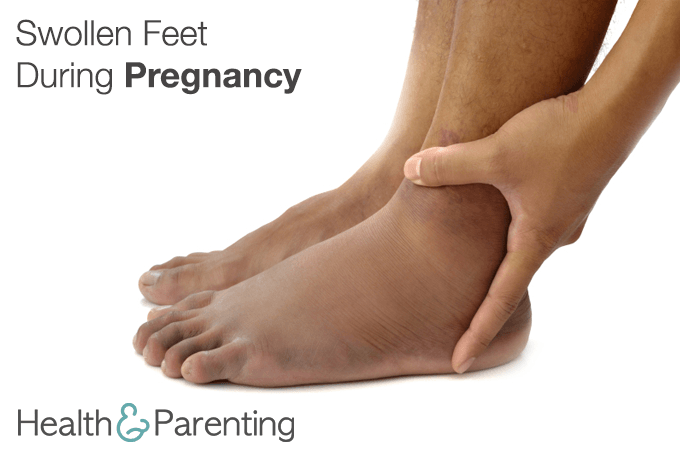Swollen feet during pregnancy is very common. Swelling during pregnancy (oedema) is generally harmless, but can indicate a more serious condition. Around 75% of pregnant women will experience oedema to some extent.
What causes swelling during pregnancy?
During pregnancy, your body retains more fluid than usual. The excess fluid accumulates in your body tissues, and this can cause swelling. This fluid tends to build up in the lower parts of the body, leading to swelling in the feet. Swollen ankles is a common pregnancy complaint. Some women may also find their legs, hands and face swell during pregnancy.
Swelling during pregnancy is most common in:
- overweight women
- hot weather
- the third trimester
- the evenings
How can I prevent swelling?
Oedema is a harmless condition, but can be uncomfortable. To avoid swollen feet and ankles, you should:
- wear flat shoes
- wear properly-fitting shoes
- avoid standing for long periods
- avoid crossing your legs
- avoid wearing tight socks
- avoid salt in your diet
- avoid caffeine
- stay hydrated
- rest your feet regularly throughout the day
- elevate your feet whenever possible
Taking regular exercise can help to prevent swelling by increasing blood circulation. Swimming, walking and yoga are all great forms of exercise during pregnancy. You can even exercise your feet at your office desk to prevent swelling. Foot rotations and foot flexes can help to keep blood circulation and decrease swelling. Spend ten minutes each day rotating and flexing your feet.
Drinking water is an important tool in the battle against fluid retention, crazy as it sounds! If your body thinks its not getting enough water, it will retain more fluid. By drinking plenty of water, you can stop the build up of excess fluids in the body tissues. You should aim for around eight glasses of water a day.
Some women find that their shoe size increases during pregnancy. If your shoes are starting to feel tight, you should purchase some new shoes. Tight fitting footwear can restrict blood flow and cause swelling. Your feet will swell over the course of the day. You should shop for new shoes at the end of the day to ensure a good fit even after swelling.
When to seek medical help
In rare cases, oedema can be a symptom of more serious conditions. You should contact your healthcare provider immediately if the swelling is accompanied by:
- redness
- pain
- streaking
- purplish skin
Oedema is a symptom of pre-eclampsia. If your hands, feet or face swell suddenly, you should seek immediate medical help. Other symptoms of pre-eclampsia include:
- visual disturbances
- vomiting
- severe headache
- high blood pressure
- protein in the urine
- pain below the ribs
Written by Fiona, proud owner of a toddler, @fiona_peacock
This information is not intended to replace the advice of a trained medical doctor. Health & Parenting Ltd disclaims any liability for the decisions you make based on this information, which is provided to you on a general information basis only and not as a substitute for personalized medical advice. All contents copyright © Health & Parenting Ltd 2018. All rights reserved.










